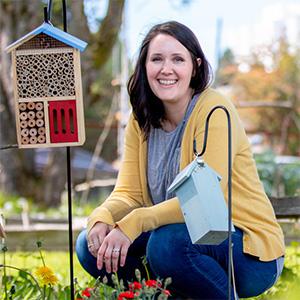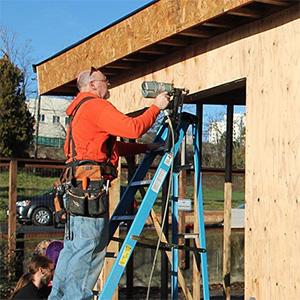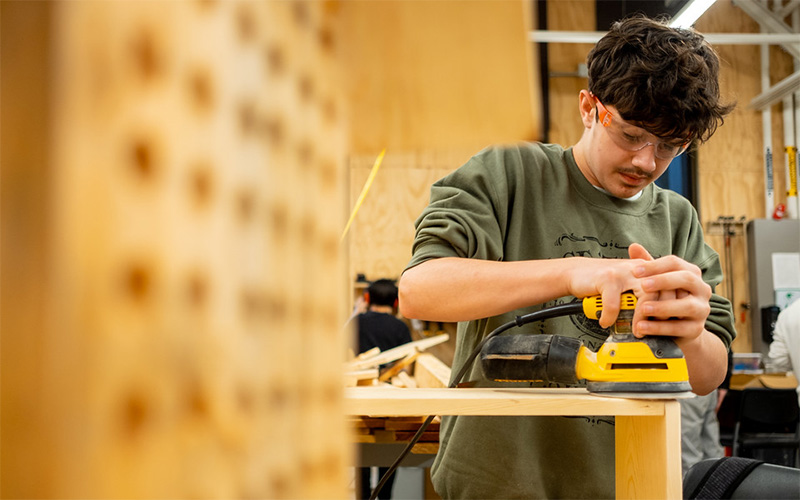
A Blossoming Partnership
Local high-school students teamed up with UW Tacoma's Giving Garden to create habitats for bees and other pollinators.
Local Tacoma high schoolers have been as busy as bees preparing to build and install pollinator habitats on the UW Tacoma campus this January. Students from the Science and Math Institute (SAMI), Tacoma School of the Arts (SOTA) and the school of Industrial Design, Engineering and Art (IDEA) are part of a three-and-a-half-week long program called “Bee UWT,” a class designed to promote student leadership, educate citizens in the community about beekeeping, and promote pollinators in the city of Tacoma.
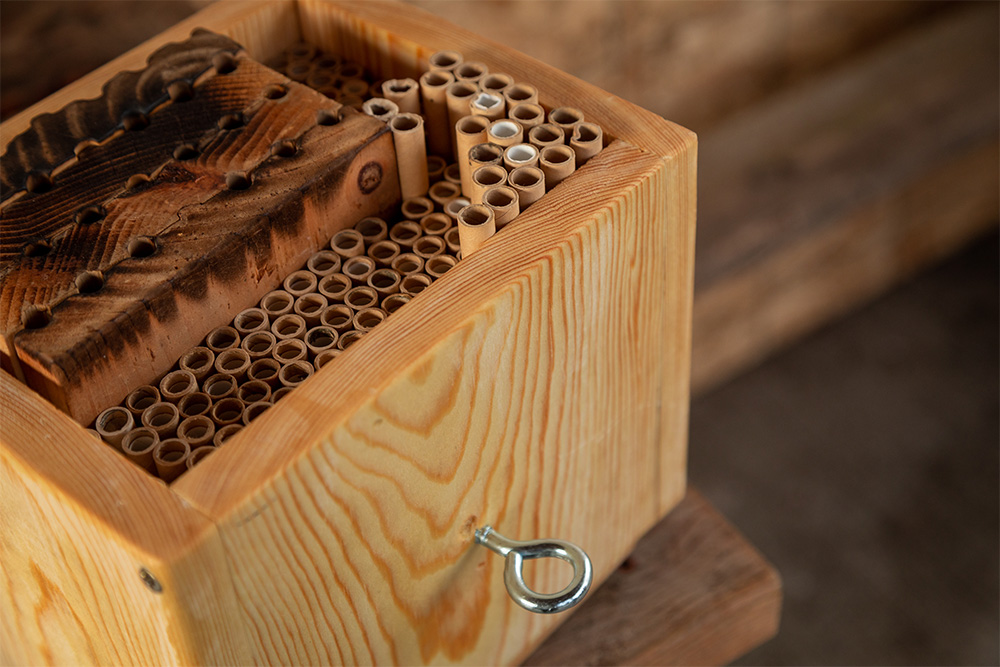
Lauren Anderson, a science teacher at IDEA, designed the mini-term class as an offshoot of a student-led club called Bee 253. The club, started by a group of SAMI students, has been growing over the past couple of years with the goal of increasing pollinators throughout the city. “It was started by a senior at SAMI four years ago,” explains Anderson. “That student got a group of his friends to start making hives at SAMI which eventually turned into a club.” The hives have since been moved off campus, and the club expanded their endeavors to become a student-run business. Students sell products like soaps, lotions and lip balms made with wax from their honey beehives, and in turn learn about entrepreneurship, profit and loss, and managing an online store. But it’s the focus on saving pollinators that drives the students to keep Bee 253 going.
There’s also the sense of excitement that comes with beekeeping and maintaining a hive of 50,000 to 75,000 bees but Anderson explains that working with bees has the added benefit of teaching kids how to manage the pressures and stress of everyday life. “It’s good for life skills,” she said. “We're always going to have family emergencies or we’re all going to have nerve-wracking presentations at work but it’s about being able to control that calmness, to know that you have confidence in yourself.” The class motto for “Bee UWT” this term is “calm and confident.”
The Bee 253 club and ”Bee UWT“ class emphasize an interdisciplinary approach to sustainability, and focus on concepts like access to healthy food in urban communities, sustainable food production practices and diversity in ecosystems. Students in Anderson’s class vary in age and experience level in working with, designing and building beehives and pollinator habitats. Kids from each campus and grade level bring different skill sets and everyone has a different job, but the students support each other in a variety of tasks, and develop skills as they share tasks and work together. “There's a lot of crossover skills,” said Anderson. “You see even freshmen helping out some of the seniors and myself and then you see us helping them out in other areas.”
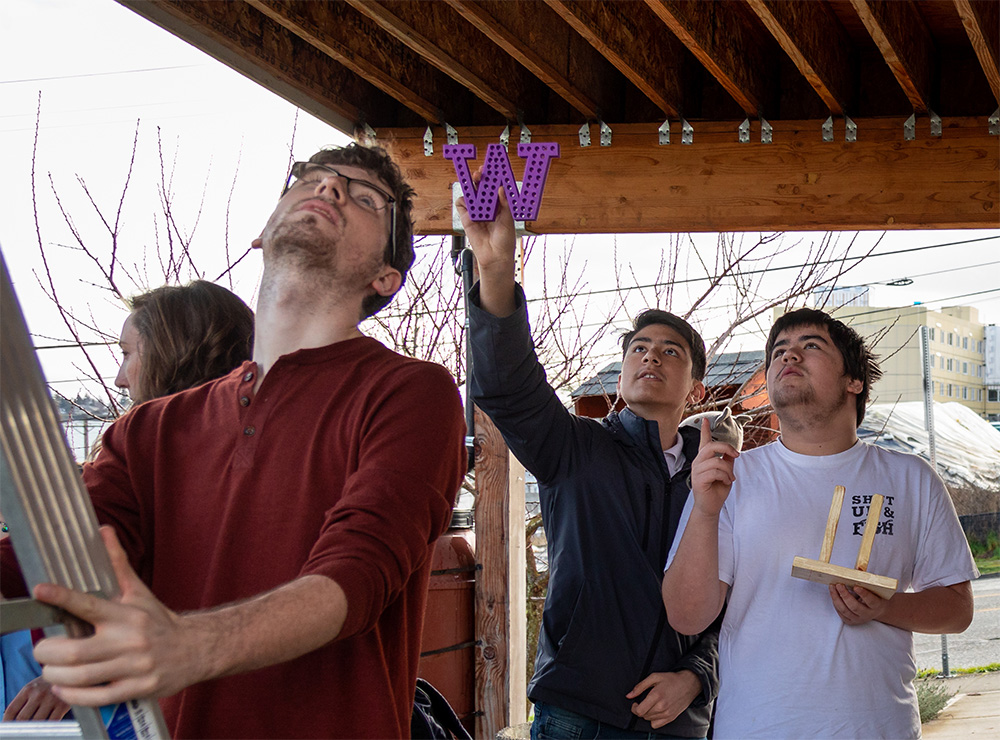
UW Tacoma invited students to create pollinator habitats at UW Tacoma’s Giving Garden, located west of campus on the northeast corner of Fawcett Avenue and South 21st St. Working in groups of two or three, students came up with design concepts and presented them to a panel of UW Tacoma staff and faculty at the Global Innovation and Design Lab last week. Each group was assigned a different species of local pollinator to design a habitat for, including: mason bees, leafcutter bees, carpenter bees, bats, and even a species of endangered butterfly. “This specific class is totally built around designing habitat for this location,” explains Anderson.
Many of the students involved in the “Bee UWT” mini-term class have a special interest in engineering, and utilized digital designs and 3D renderings of their habitats in preparation for their pitch. The students pitched the benefits of their pollinator along with their proposed ideas, and panelists selected their four favorite concepts to proceed. Over the next few weeks, all “Bee UWT” students will work together to build the chosen habitats, test their functionality, and create interpretive signage for visitors to the garden, seeing a real-world project through from start to finish. “It’s been a nice analogy — a hive of everybody doing a job, helping towards a common goal,” says Anderson.
Main Content
The Giving Garden at Age Ten
More bees. More beds. A paid coordinator. Even hops. At age ten, UW Tacoma's community garden is growing and bearing fruit.
Main Content
The Giving Garden Grows a SHED
A community partnership with Clover Park Technical College yields the Giving Garden's new Sustainable Hub for Education and Demonstration (SHED).
